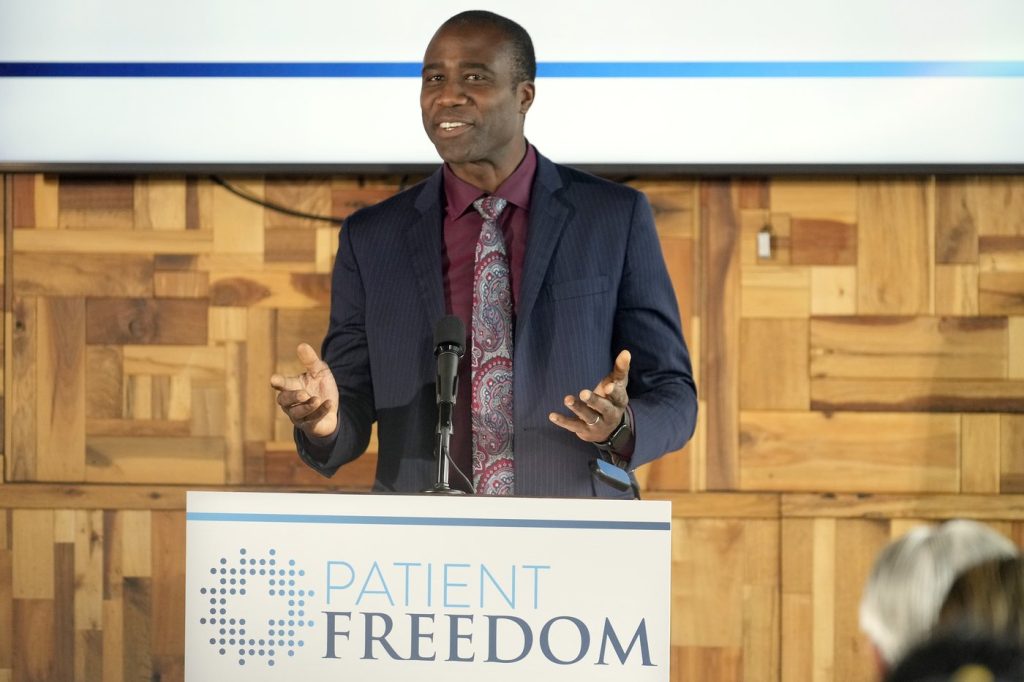ST. PETERSBURG, Fla. (AP) – Dr. Joseph Ladapo, the Florida Surgeon General appointed by Republican Governor Ron DeSantis, has made controversial remarks equating vaccination requirements for diseases like measles, polio, and chickenpox to "government-imposed slavery." This statement has fueled a heated debate over public health policies and individual freedoms, with Ladapo suggesting that mandated vaccinations represent an improper government intrusion into personal health decisions.
This week, Ladapo announced Florida's intent to eliminate all mandated vaccinations for schoolchildren and others, a move that has caught international attention. He referred to the decades-old immunization requirements, which have been recognized globally for saving millions of lives, as unwarranted mandates. Ladapo stated, "Every last one is wrong and drips with disdain and slavery," emphasizing his belief that individuals should have autonomy over their own and their children’s health choices.
Despite these alarming assertions, a detailed action plan for removing immunization mandates in Florida is still lacking. Ladapo conceded that any significant changes would necessitate legislative approval, leaving many educators and health professionals severely concerned about the potential impact of such eliminations. Dr. Rana Alissa, president of the Florida Chapter of the American Academy of Pediatrics, warned that loosening health policies could lead to increased disease spread in schools.
Joseph Ladapo, 46, emigrated from Nigeria to the United States at the age of five, later obtaining a degree in chemistry from Wake Forest University before earning his medical degree and a doctorate in health policy from Harvard University. After his affiliations with prestigious institutions like New York University and UCLA, he attracted Governor DeSantis' attention through his outspoken views against standard pandemic responses. He was appointed as Florida Surgeon General in 2021 and subsequently secured a position as a professor at the University of Florida's medical school.
Both Ladapo and DeSantis have cast doubt on public health measures that include mask mandates, online education, and proof of COVID-19 vaccinations for attendance at various public activities. Criticism of the mRNA vaccine has also surfaced from Ladapo, who has been accused of misrepresenting studies to undermine public confidence. This culminated in a 2024 guidance statement from his Department of Health which cautioned against the COVID vaccine, allegeding that the federal government had failed to demonstrate its safety and efficacy.
Major health organizations, including the Food and Drug Administration (FDA), have refuted Ladapo's claims, emphasizing that misinformation regarding vaccines contributes to vaccine hesitancy and undermines public health efforts. The FDA openly disagreed with his stance, highlighting the critical importance of accurate data in sustaining vaccination rates.
Ladapo’s assertions indicate a broader skepticism towards established health policies, including recent discussions surrounding the FDA’s stance on unpasteurized milk and fluoride in drinking water. His movement toward "medical freedom" resonates with some constituents who support his drive against what they perceive as overreach by health authorities.
Opposition to Ladapo's views is growing, with calls for his removal from political figures like U.S. Representative Frederica Wilson, who rebuked his policies as dangerous to public health and detrimental to children. The ongoing tension surrounding vaccination mandates reflects a larger ideological battle, with Ladapo seemingly enjoying the backing of DeSantis and a faction of conservatives who value his dissent from mainstream medical perspectives.
As debates continue, Ladapo encourages advocates of "medical freedom" to persist in their fight against perceived medical authoritarianism, framing the conversation around individual rights and informed choice. His remarks and policy proposals indicate a determined push against long-standing public health conventions, which may have lasting consequences on Florida's health landscape.











